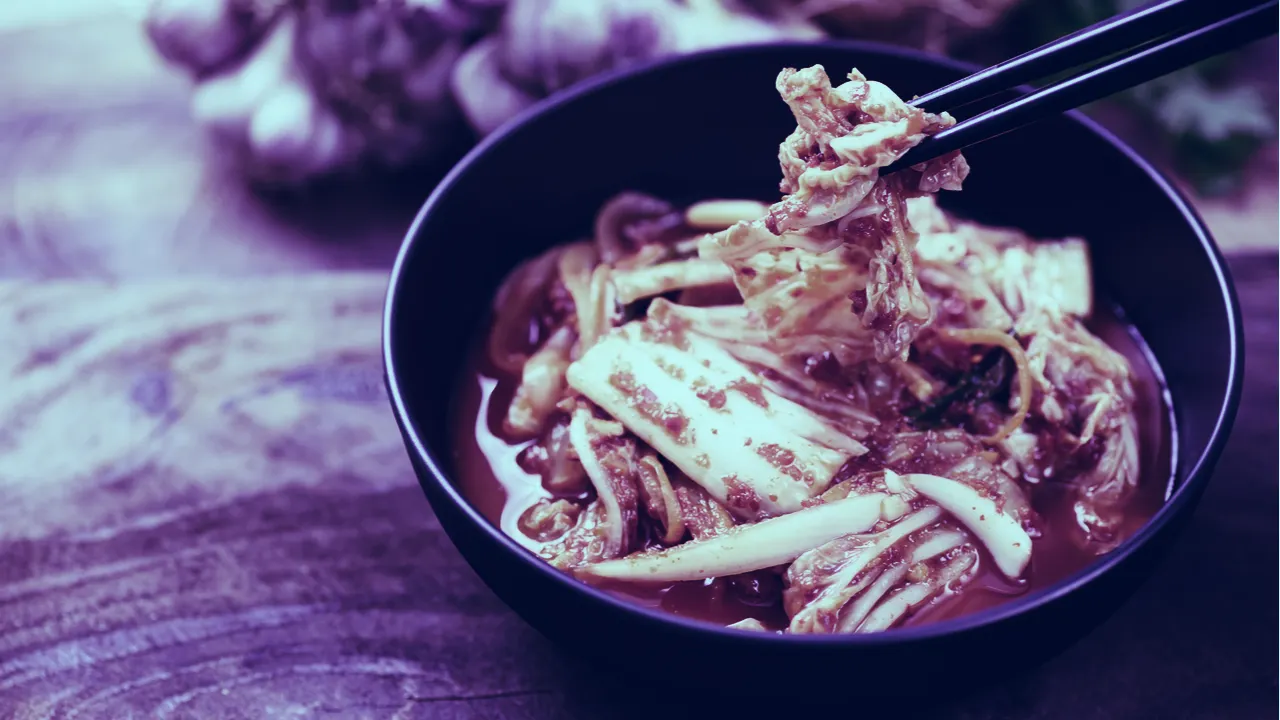In brief
- The so-called kimchi premium has struck South Korea once again, as the local Bitcoin price is 15% higher than elsewhere.
- Fueled by high demand for Bitcoin but low supply on local exchanges, Bitcoin’s currently trading for $66,633 on South Korean exchanges.
- The country’s capital controls caused the arbitrage, analysts told Decrypt.
Bitcoin’s price on global markets is hovering around $59,000 today. But not if you’re in South Korea: there, a single Bitcoin trades for $66,633 at the time of writing.
The Bitcoin / Korean won pairing on two of the country’s largest exchanges, Bithumb and Korbit, shows that Bitcoin’s price is currently 75,166,000 South Korean won, equivalent to $66,633.
That’s a difference of 15% compared to Bitcoin / USD pairing on global exchanges, such as Binance and Coinbase. That galloping gap is called the kimchi premium, named after the Korean dish of pickled vegetables.
The kimchi premium occurs because South Korean exchanges don’t have enough crypto to meet the huge demand. That’s due to the country’s restriction on capital flows, analysts told Decrypt.
South Korea’s government makes it cumbersome to send the country’s national currency, the won, to other countries, making it tricky for crypto exchanges to keep money flowing through them.
The delays create a backlog of demand, temporarily pumping up the price of Bitcoin. And there’s tons of demand: South Koreans love Bitcoin. As much as one-third of all workers owned Bitcoin in 2017, according to a survey from job portal Samarin. And registrations in January on Bithumb increased by 760% compared to last year.
“Especially during bull markets, the kimchi premium tends to happen as South Korean retail speculators FOMO into the markets,” Vetle Lunde, an analyst at Arcane Research, told Decrypt.
But the kimchi premium of 15% is still substantially lower than the massive premiums in May 2017 (63%) and January 2018 (47%), explained Lunde, in reference to the premiums at the end of the day.
And the kimchi premium fell to a discount—Bitcoin was cheaper to buy in South Korea than elsewhere—in early 2018, when Bitcoin crashed from near-enough $20,000 and the bear market set in. As recently as February 2021, the premium stood at -6.5%. “The discount reflects the bearish sentiment among South Korean retail traders during this period,” Lunde told Decrypt.
According to Doo Wan Nam, head of business development in Asia for governance protocol Maker, the kimchi premium has reappeared due to high demand for Bitcoin, but insufficient supply of the coin on South Korean exchanges.
How the arbitrage works
The Bitcoin/USD pairing is usually the most common pairing for crypto exchange. But not in countries like South Korea, where the national currency dominates. In South Korea, traders are more likely to convert from their national fiat currency into crypto.
Often there’s a small premium on that purchase due to conversion rates, but as global traders jump on those exchanges to profit from those differences, the gap closes quickly. That’s called “arbing,” short for arbitrage.
But arbing crypto in South Korea is not very common. “The price differences represent an arbitrage opportunity, but strict South Korean capital controls make arbitrage difficult,” Lunde told Decrypt.
Arbing crypto is not a crime, traders have to tell the South Korean government when they send money abroad in large amounts, explained Nam. Reporting leads to delays, making it difficult to pull off the arbitrage trade.
But today’s kimchi premium might be way too appetizing for arbitrageurs not to bite.
“With premiums growing at this scale,” Lunde told Decrypt, “one should expect that traders find a way to close the spread—despite the risks associated.”
And that’s likely to lead to a market correction for South Korea’s Bitcoin market, he warned.
Disclaimer
The views and opinions expressed by the author are for informational purposes only and do not constitute financial, investment, or other advice.
Daily Debrief Newsletter
Start every day with the top news stories right now, plus original features, a podcast, videos and more.

